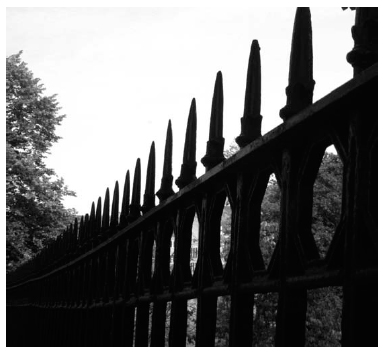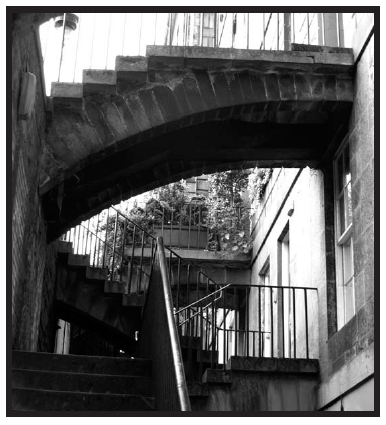Knots And Crosses (26 page)
Authors: Ian Rankin


What do you think about Rebus as a character? If you have read several or more novels from the series, discuss how his character is developed.

If Rebus has a problem with notions of ‘pecking order’ and the idea of authority generally, what does it say about him that he chose careers in hierarchical institutions such as the Army and then the police?

How does Rebus relate to women: as lovers, flirtations, family members and colleagues?

Do the flashes of gallows humour as often shown by the pathologists but sometimes also in Rebus’s own comments increase or dissipate narrative tension? Does Rebus use black comedy for the same reasons the pathologists do?

Do Rebus’s personal vulnerabilities make him understanding of the frailties of others?

How does the characterisation of Rebus compare to other long-standing popular detectives from British authors such as Holmes, Poirot, Morse or Dalgleish? And are there more similarities or differences between them?

 KNOTS & CROSSES
KNOTS & CROSSESThings aren’t going well for John Rebus, a Detective Sergeant when we first meet him: he’s smoking and drinking too much as he smarts from the break-up of his marriage to Rhona, who has taken their daughter Sammy with her to London. And work is a trial, as someone is seizing and killing young girls and taunting the police with their deaths, as a journalist becomes intent on exposing Rebus as being implicated in his brother Michael’s drugs scam.
And after a series of peculiar letters, each containing some knotted string and a tiny cross made of matches, arrives at his home Rebus’s antennae begin to twitch uncontrollably. Although this could be more because he’s heading for a physical breakdown that necessitates a brief hospital sojourn. But it’s only after someone phones in with an acrostic clue that the game starts to unfold, and Rebus realises that this series of murders is in fact intensely personal: the direct result of an SAS training exercise many years earlier that went disastrously wrong. Even worse, Sammy’s life is now in peril as part of a frantic contest played out in the network of foetid tunnels that lie beneath the streets of Edinburgh.
Ian Rankin intended
Knots & Crosses
to be in part a reworking of the classic Dr Jekyll and Mr Hyde story, with an additional nod towards the real-life Edinburgh character Deacon William Brodie, a gentleman by day but a criminal by night. In this debut, already many of the themes appear that will be expanded on in later books: the grimy underside of Edinburgh; Rebus isolated and ill at ease as he remains dogged in his determination to track down a variety of troublesome killers, characters who will return in later novels. But scant reviews and modest sales of
Knots & Crosses
did little to suggest how popular Rebus would become.
 Discussion points for
Discussion points forKnots & Crosses
In what ways does
Knots & Crosses
reveal the passage of time since it was written?

Rebus’s relationship with his brother Michael isn’t easy; is this a metaphor for the difficulties Rebus faces regarding other sorts of ‘brotherhood’, such as within the police force or the army?

Ian Rankin refers several times to ‘practical jokes’; in
Knots & Crosses
how does he explore themes of jokes, games and linguistic trickery?